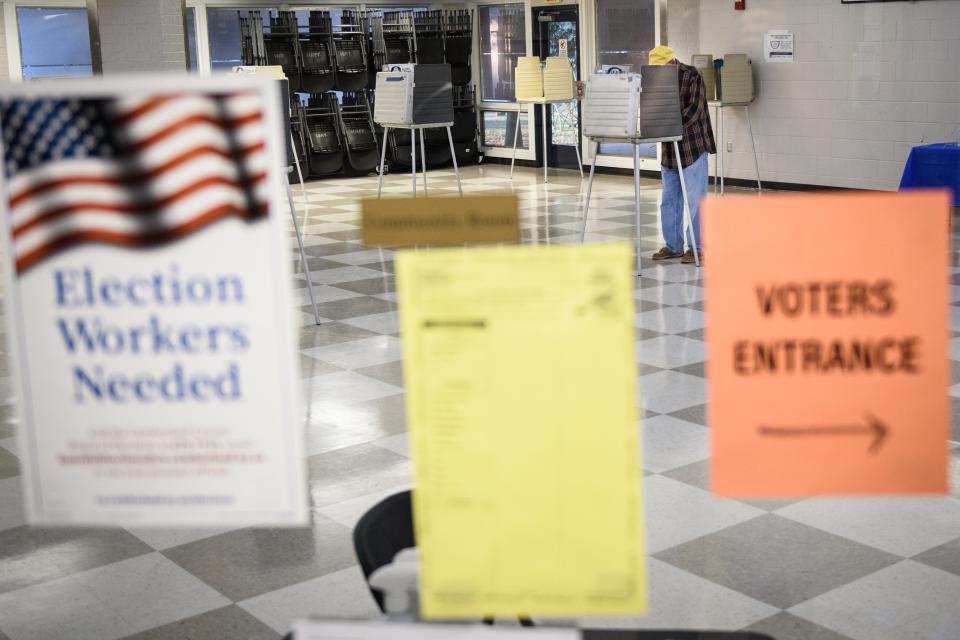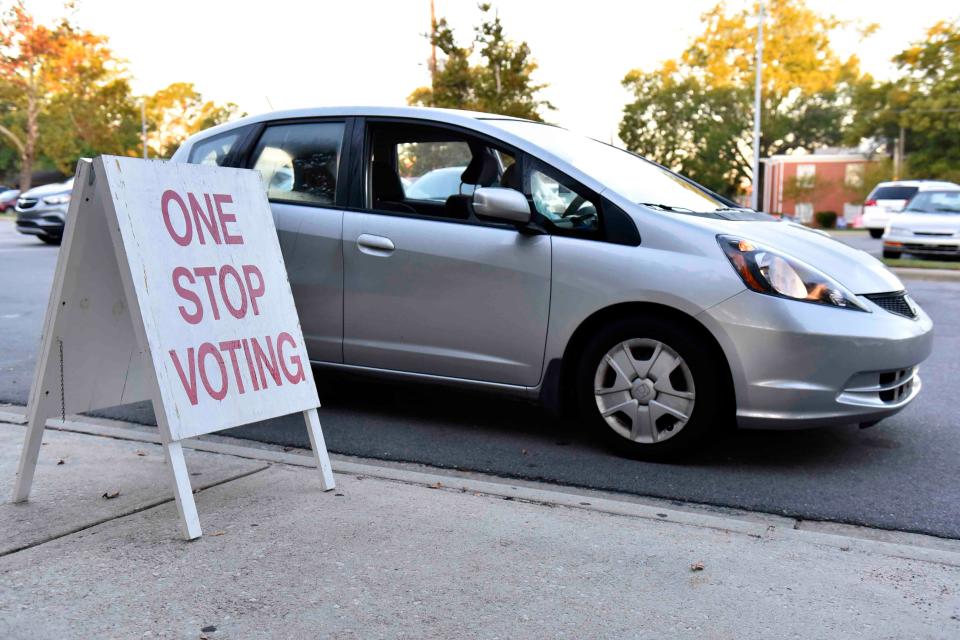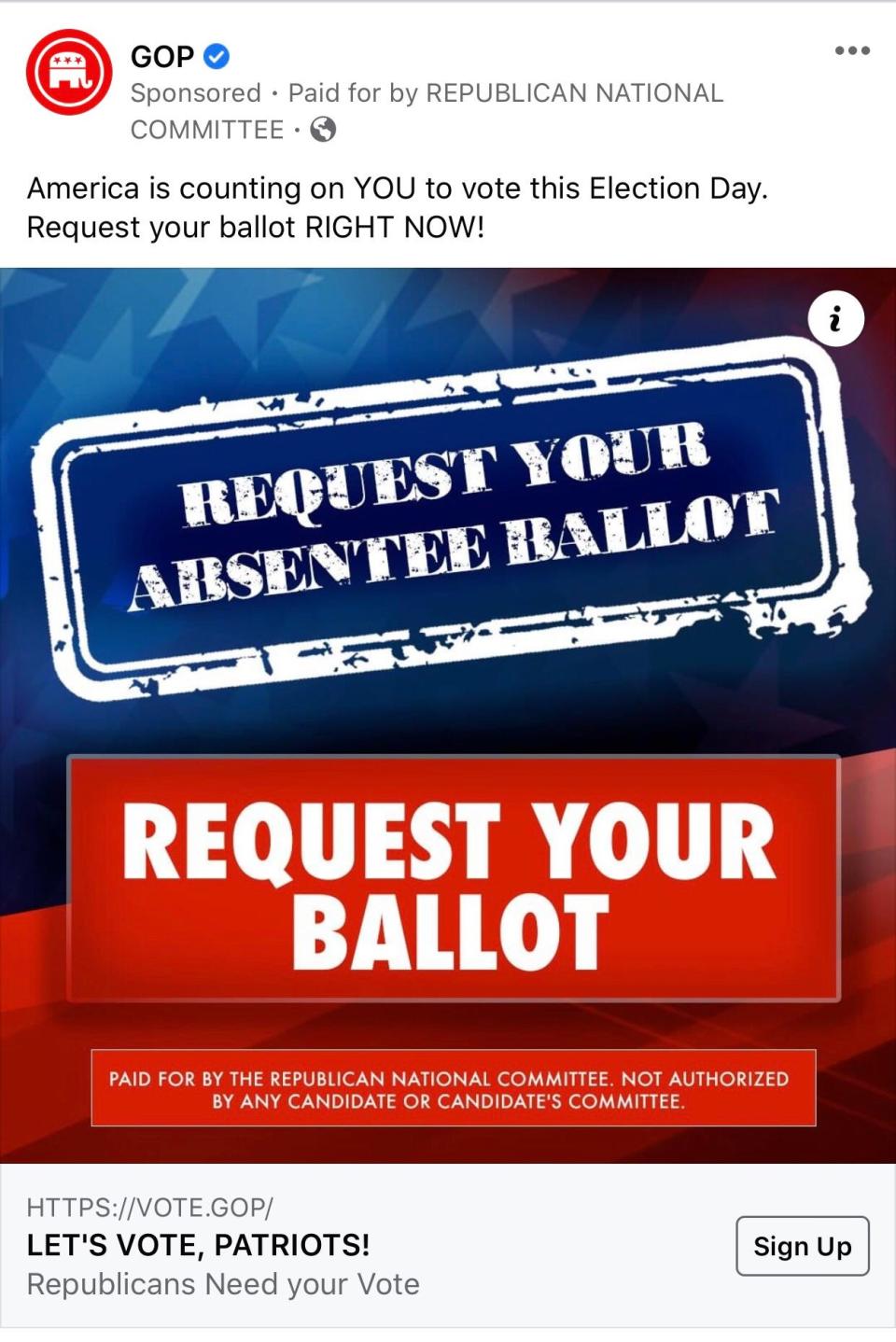The 2022 elections have already started in NC! Want to vote? Here is what you need to know
The 2022 midterm elections got underway on March 28 with the start of mail-in absentee balloting ahead of the May 17 ending date.
If you want to vote this year, here are some things you need to know:
What’s on the ballots?
Voters right now and through May 17 are deciding which candidates will advance to the general elections in November for the U.S. House and Senate, the state legislature and the state Supreme Court. There are local races for judges, county commissioners, sheriff, clerk of court, register of deeds, and other offices.
Some cities and towns in North Carolina were supposed to have municipal elections last fall, but their elections were delayed until this spring. Those races, too, are on the ballots.
Voters in St. Pauls and in Cleveland County also have alcohol sales referenda on their ballots.
Read all about it: Cleveland County voters to decide on countywide beer and wine sales
To see what is on your ballot, go to this website and enter your name, date of birth and county: votebymail.ncsbe.gov/app/sb/vr.

Which cities and towns are holding postponed 2021 elections?
Here are some of the cities and towns holding their 2021 elections in 2022:
Fayetteville has its city council primary through May 17 and its general election through July 26.
Kings Mountain, Jacksonville, Lexington, Clinton, Lumberton and St. Pauls all have general elections through May 17. Lexington and Clinton also have school board elections.
New Bern and Erwin have general elections through May 17 followed by run-off elections, if needed, through July 26.
The 2021 elections for these municipalities were postponed until this year because the U.S. Census data they needed to update their election maps prior to their fall election dates was released too late to get new maps done in time.
Asheville’s municipal and school board primaries are May 17, but that was their regularly scheduled date, not a postponement from 2021. Asheville’s general elections are Nov. 8.
Wait — there are going to be elections in July?
Yes, there will be elections that finish their balloting on July 26.
In addition to the municipal elections listed above, July 26 is the ending date for run-off partisan primaries ahead of the Nov. 8 general elections. We won’t know how many run-off primaries will be needed until the final results from the voting that ends May 17 are certified.
Candidates in partisan primaries must win more than 30% of the votes to avoid a run-off primary. The most-prominent races that could head to a run-off include the Republican primary for Madison Cawthorn’s seat in Congress and the Republican primary for U.S. Senate.
Must you belong to a political party in order to vote? No
The 2.53 million voters in North Carolina who aren’t registered with the Democratic, Republican or Libertarian parties can vote this spring and summer along with the 2.5 million Democrats and 2.2 million Republicans. North Carolina’s 49,036 Libertarians have no partisan primaries this year, so their members may vote only in the non-partisan elections underway this spring.
Independent voters will have two options:
Select a non-partisan ballot and vote only in the non-partisan races, such as city council races and any local referenda.
Select one of the partisan ballots and vote in those elections plus the nonpartisan elections.
Note that unaffiliated voters are not allowed to vote in more than one political party’s primary. If you are independent and you happen to like a particular Republican candidate for sheriff and a particular Democratic candidate for the county commission, you’ll have to decide which candidate will get your vote. The other candidate that you liked will have to do without your support and possibly lose the election because you were blocked by law from voting for them.
Learn more: NC election laws biased against 2.5M independent voters, and favor Republicans, Democrats
None of the above: NC voters explain why they reject Democrats and Republicans
Check if you’re registered to vote
Anyone who has previously registered to vote and who has not changed addresses since they last voted should still be registered to vote and qualified to vote where they live.
To make sure your voter registration is in place, you can check your voter registration status at this link: vt.ncsbe.gov/RegLkup.
How to register to vote or update your registration
If you have never registered to vote, or you are new to North Carolina, you’ll need to register to vote to participate in the elections here. Also, if you have changed addresses from somewhere else in North Carolina since you last voted, you’ll need to register with your new address.
You can register to vote through the Division of Motor Vehicles (if you have a North Carolina driver license or state-issued ID), by mail with your local elections office and in person at your local elections office and other places.
Go to this website for more information and to download a voter registration form: ncsbe.gov/registering/how-register.
And go to this website for information on how to update your registration: ncsbe.gov/registering/updating-registration.
Voter registration deadlines
That last day to register to vote if you intend to vote on the final May 17 election day is Friday, April 22.
If you miss that deadline, you can register to vote by participating in early voting. Note that there is no allowance for same-day voter registration on the final election day on May 17.
If you register to vote at an early voting location, you will be asked to show documentation of your current address with your name. This can be a photo ID from a government agency (including a North Carolina driver license), or a current utility bill, bank statement, government check, paycheck, or other government document.

How to vote early in person
Early voting starts April 28 and ends at 3 p.m. May 14.
If you want to vote early in person, you have to do so in your county. This website has the list of early voting sites across the state and their hours: vt.ncsbe.gov/ossite/.
You can also contact your county Board of Elections office for a list of early voting locations and hours.

How to vote by mail
To vote by mail, you need to request an absentee ballot.
Ballots may be requested through this website: votebymail.ncsbe.gov/app/home.
Voters can also get absentee ballot request forms from the state Board of Elections website or from their county Board of Election offices. Forms are at this link: ncsbe.gov/voting/vote-mail/detailed-instructions-vote-mail.
Requests for absentee ballots must be submitted no later than 5 p.m. May 10 for the May 17 elections.
Is Photo ID needed to vote? No
North Carolina’s 2018 constitutional amendment that would have required voters to show a photographic ID in order to vote is on hold because the amendment and its supporting laws are tied up in the courts. So no photo ID is required to cast a ballot this spring.
Senior North Carolina reporter Paul Woolverton can be reached at pwoolverton@gannett.com and 910-261-4710.
This article originally appeared on The Fayetteville Observer: Want to vote in NC's 2022 elections? Here is what you need to know

